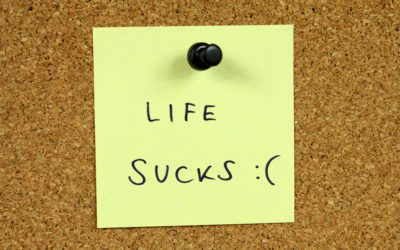For example, most people would agree that confidence is a virtue, in that it allows us to perform at our best with a feeling of ease and presence. Too little confidence leads to the “vice” of cowardice; too much confidence leads to arrogance and rash behavior. Similarly, being generous is universally seen as a moral virtue, and it sits “just right” between the vices of selfishness and profligacy.
Where this ancient quest for excellence has been striking me lately is in relation to our thinking. To be thoughtful – in other words reflective, receptive, and considered – is clearly a necessary precursor to excellence. We rail as a society against “thoughtlessness” – people who don’t think for themselves and are inconsiderate of others. But we’re far more forgiving of “overthinking” and its manifestations as worry, rumination, and overwhelm.
In my mind there are two reasons for this. One is that we think there’s nothing we can do about it – you only have to try to switch off at the end of a busy day to know how difficult it can be to stop thinking “on demand”. But the other, and in my mind more significant reason, is that we think in some ways it’s a good thing – that the more we think about something, the better quality thinking we’ll get, and that not worrying is in some way equivalent to not caring. As the playwright Bertolt Brecht once wrote, “He who laughs has not yet heard the terrible news.”
This came up in a coaching session last week when my client (I’ll call him Frederick) pointed out the importance of his work in suicide prevention. He told me the number of people in his field who commit suicide from stress-related conditions each day, and pointed out that statistically speaking, at least one of his colleagues somewhere in the world would commit suicide before our conversation was finished. While I didn’t doubt the accuracy of the statement, I wondered what it must be like to try to perform at your best when you were continually thinking about what might go wrong if you didn’t.
It reminded me of one of my own coaching clients who gave me four weeks to “sort them out” before the drugs they’d ordered to kill themselves with arrived. When I stopped freaking out, I found the presence of mind to point out that a) I couldn’t help them with a metaphorical gun to my head and b) perhaps we had stepped outside the remit of “business coaching” and they might be better off seeking a different kind of professional help. (While I am no longer in touch with that client, I can happily point out that my occasional bit of Facebook stalking has revealed that they are not only alive and well but thriving in a new career.)
When I asked Frederick if he found it helpful to be constantly thinking about how desperately important his work was, he immediately responded “yes – it keeps me motivated”. But only a few minutes earlier, he had been pointing out how overwhelmed he was and that he felt stuck in his quest to expand the scope of his work and leave a legacy behind him.
As we spoke, a metaphor came to mind:
At times the backpack feels inexplicably lighter than at other times, and during those times you are able to climb faster and with a greater sense of ease. You begin to really enjoy not only being on the trail, but also the companionship of others along the journey and the amazing things you can see as you get higher up the mountain.
From time to time, of necessity, you rest. But then you start to feel guilty about not making progress more quickly, so you add more rocks to your backpack to motivate yourself, heft it back up onto your broad but tired shoulders, and carry on up the trail…
We can all see the futility of adding rocks to an already heavy backpack to “motivate” us to climb higher, but it’s remarkable how difficult it can be to see the futility of adding more loaded thinking to an already heavy mind as a way to spur us forward towards wherever it is we’re trying to get to in our lives.
The rule of thumb is this:
The less you have on your mind, the higher your level of performance will be.
To go back to our Aristotelian Goldilocks principle, excellence comes not from being care-less or care-full; it comes when we allow ourselves to be care-free.
Frederick quickly saw the irony of adding stress and pressure to his thinking in order to motivate himself to help others reduce the amount of stress and pressure that they felt. While time will tell how his work evolves, there is no doubt in my mind that the very thing he is working for – the wellbeing of humanity – will come about faster when worked at from a place of wellbeing inside himself.
And while we all put on the backpack of stressful and worry-laden thinking from time to time, isn’t it nice to know that we’re never more than one thought away from dropping our burden and moving forward in our lives with ease and excellence?
With all my love,
![]()










